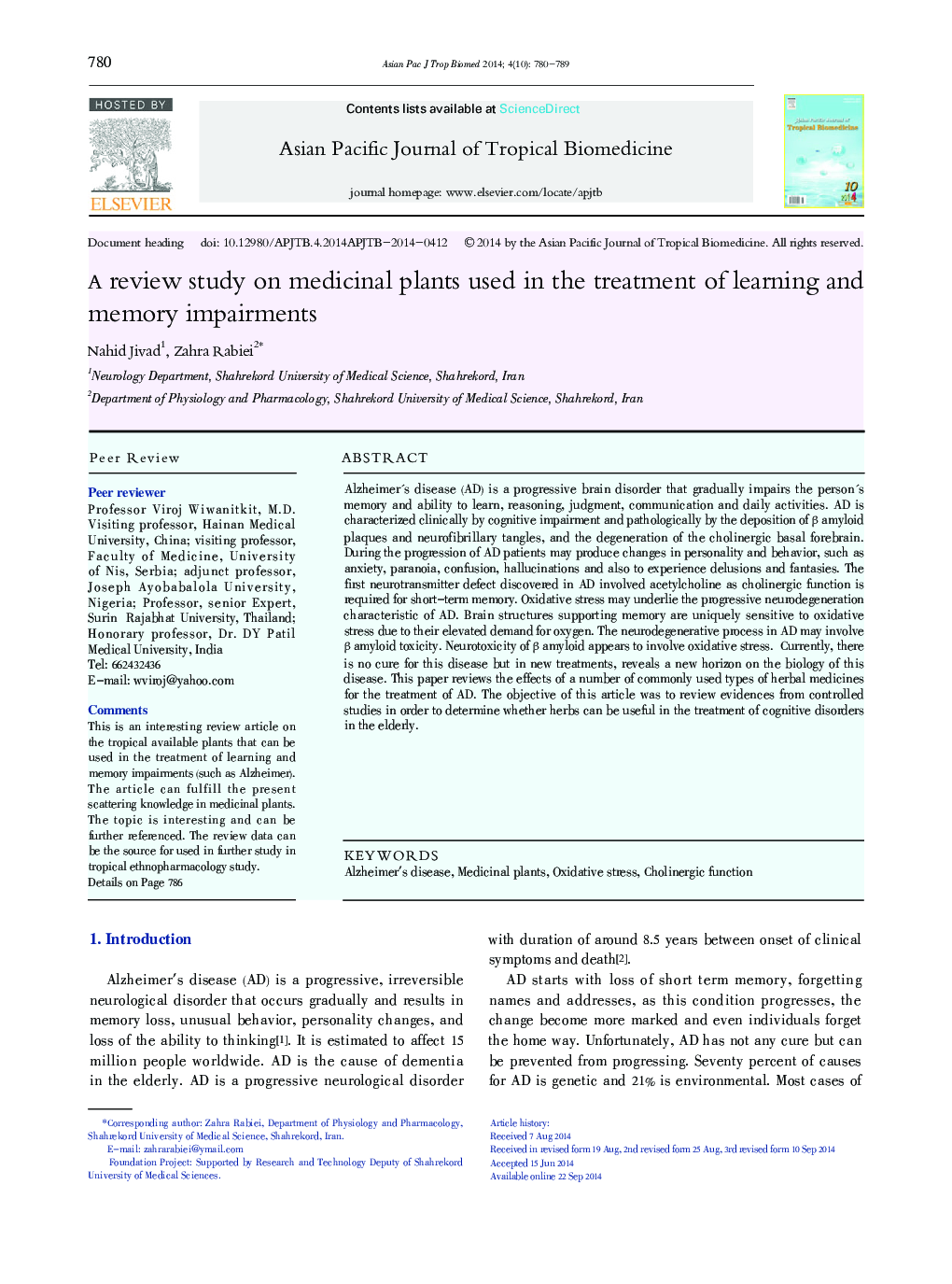| Article ID | Journal | Published Year | Pages | File Type |
|---|---|---|---|---|
| 2032875 | Asian Pacific Journal of Tropical Biomedicine | 2014 | 10 Pages |
ABSTRACTAlzheimer's disease (AD) is a progressive brain disorder that gradually impairs the person's memory and ability to learn, reasoning, judgment, communication and daily activities. AD is characterized clinically by cognitive impairment and pathologically by the deposition of β amyloid plaques and neurofibrillary tangles, and the degeneration of the cholinergic basal forebrain. During the progression of AD patients may produce changes in personality and behavior, such as anxiety, paranoia, confusion, hallucinations and also to experience delusions and fantasies. The first neurotransmitter defect discovered in AD involved acetylcholine as cholinergic function is required for short-term memory. Oxidative stress may underlie the progressive neurodegeneration characteristic of AD. Brain structures supporting memory are uniquely sensitive to oxidative stress due to their elevated demand for oxygen. The neurodegenerative process in AD may involve β amyloid toxicity. Neurotoxicity of β amyloid appears to involve oxidative stress. Currently, there is no cure for this disease but in new treatments, reveals a new horizon on the biology of this disease. This paper reviews the effects of a number of commonly used types of herbal medicines for the treatment of AD. The objective of this article was to review evidences from controlled studies in order to determine whether herbs can be useful in the treatment of cognitive disorders in the elderly.
